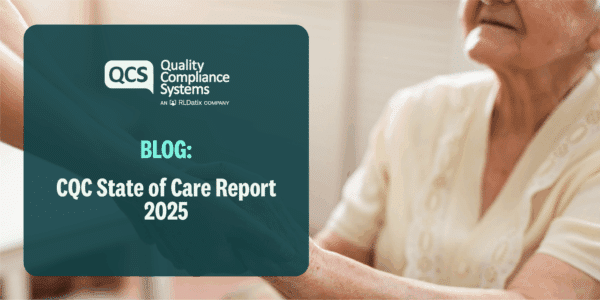This morning the annual CQC State of Care Report was released, with a foreword written by Sir Julian Hartley; how quickly things can change at CQC. It is also ironic that the report details the quality of maternity services being a concern, the investigation into which was the reason Sir Julian stepped aside yesterday.
The report itself delivers a sobering and critical assessment of the health and social care system in England, warning that it remains dangerously fragmented and under severe strain.
It emphasises that persistent failures in quality, access, and equality are really affecting the ability of health and social care to meet the ongoing and ever-increasing needs of the population. The CQC has identified that immediate attention is needed to address systemic weaknesses across funding, integration and workforce strategy.
There are some sobering ststistics in the report that highlight the depth and severity of the issues presented:
- The number of new requests for local authority adult social care support that resulted in no service being provided has increased by 27% over the last 5 years.
- Demand for local authority funded social care support continued to rise – new requests for care were 4% higher in 2023/24 compared with the previous year, and 8% higher than in 2019/20.
- The proportion of older people receiving local authority-funded long-term social care has fallen over the last 20 years from 8.2% to 3.6%.
- Evidence of homecare providers handing back contracts due to rising costs.
- Vacancy rates in adult social care are 3 times higher than those in the wider job market, and the situation is worse for homecare than for care homes.
There is a picture of reduced funding, increased demand and limited availability of services. This is seriously affecting the quality of care and the faith in services being available at the right time and place for the right people.
The report does highlight some pockets of hope in social care, stating that there was evidence of good leadership and a determined drive towards providing innovative and creative services. But these ‘pockets’ do not address the underlying systemic issues presented in the CQC State of Care report.
The demand for services is also increasing, for example for people requiring mental health interventions – there are an average of 453,000 referrals every month, which is a 15% increase from 2023. This, combined with more complex needs and increased wait times, is having a serious impact on people’s mental health. The CQC also report that mental health teams and workforce are under severe pressure, experiencing ‘burnout’. It is also compounded by the lack of a joined-up approach to mental health, with systems being hard to manage and negotiate.
Inequalities are also reported, with there being regional differences in the quality of services being provided. In addition, there are concerns raised about the access to and quality of autism, maternity, and dental services.
The CQC’s State of Care Report for 2025 is not an easy read but it is an honest reflection and summary of health and social care in 2025. It highlights the issues and what needs to change. Without action, it is felt that the fragmentation will worsen, the gridlock will tighten, and the quality of care will continue to be eroded for those who need it most.
View the full CQC State of Care Report for 2025 here.





